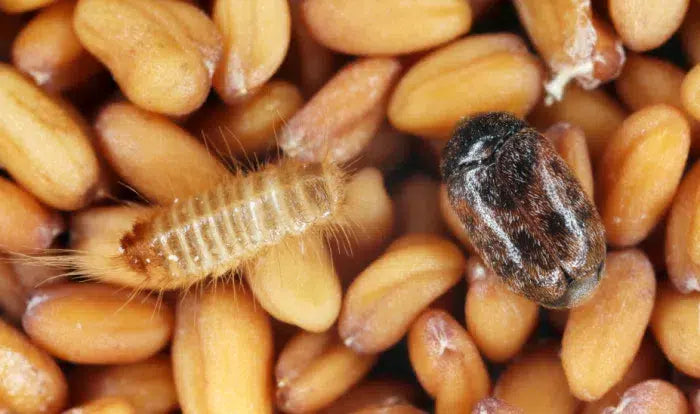Combating Khapra beetles
Do you have Khapra beetles in your pantry? ✅ Combat Khapra beetles, grain beetles, and other pests naturally and sustainably with GREEN GUARDIA – without chemicals, safely, and effectively.

1. General information about Khapra beetles
The Khapra beetle (Trogoderma granarium) is one of the most dangerous stored product pests in the world. Originally from India, it has now spread to many parts of the world and is considered a quarantine pest .
Khapra beetles primarily attack grains, flour, rice, nuts, seeds, and legumes . The larvae are particularly damaging: they bore into stored food, leaving gnawing damage and rendering food unusable. An infestation spreads rapidly and can destroy entire stores.
